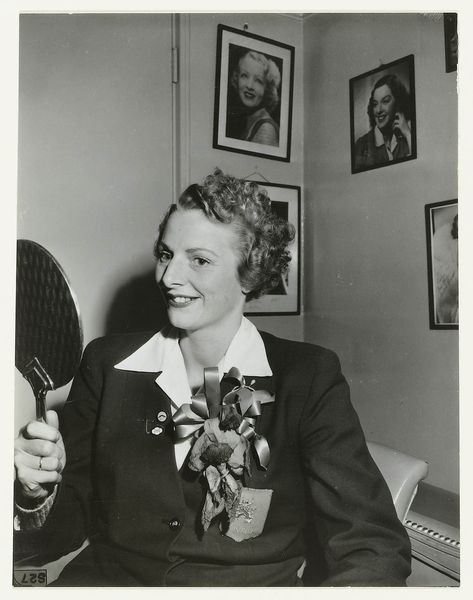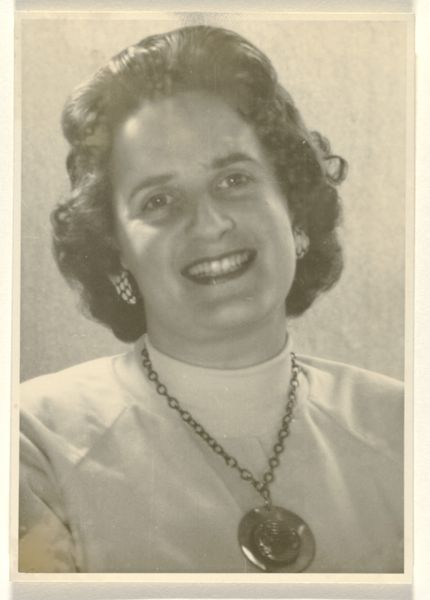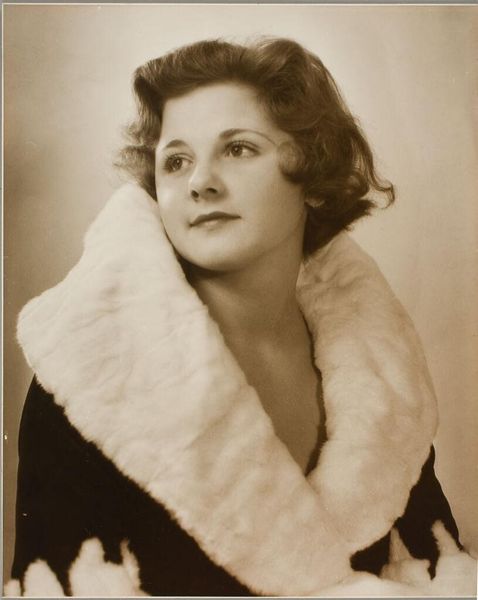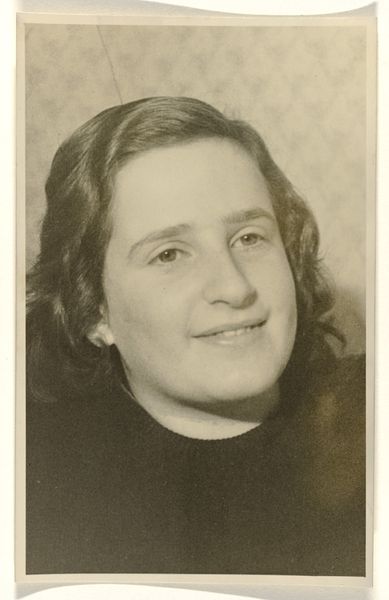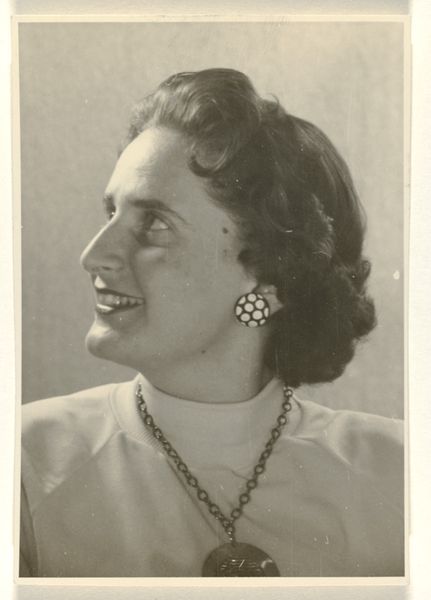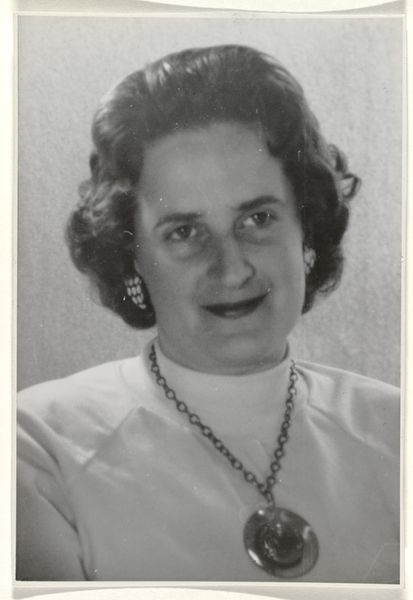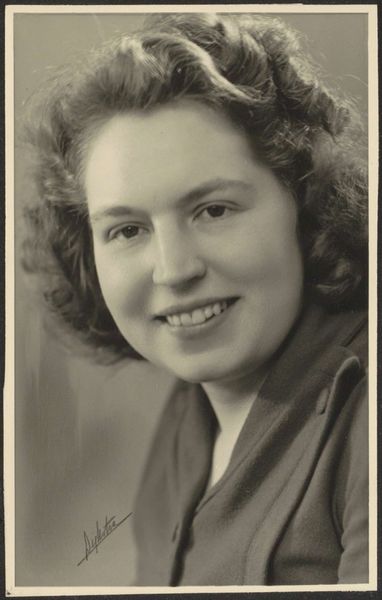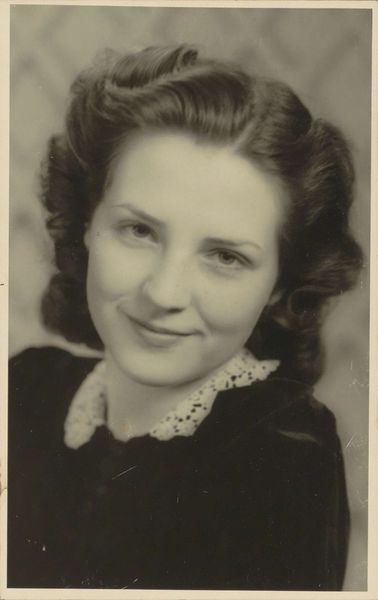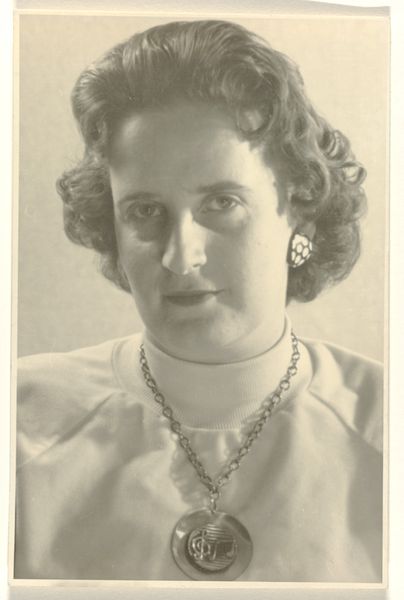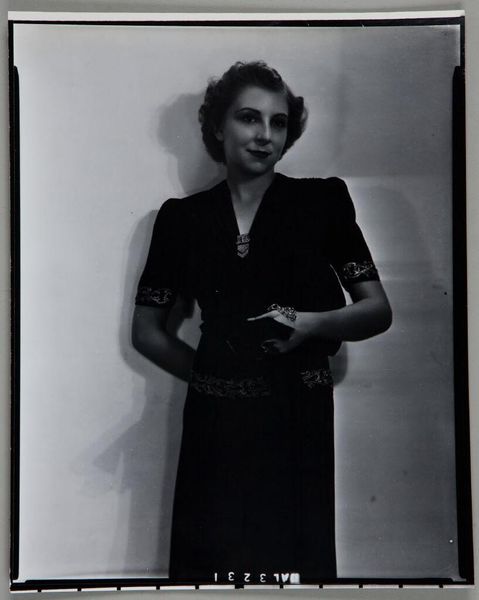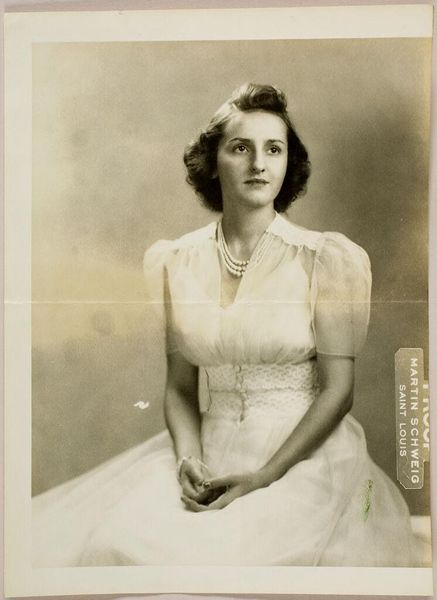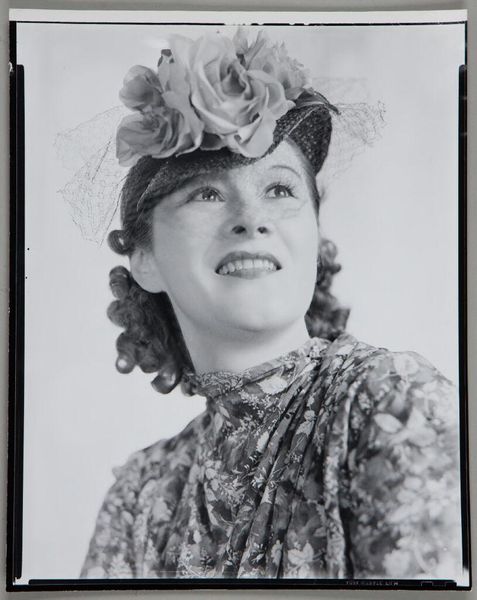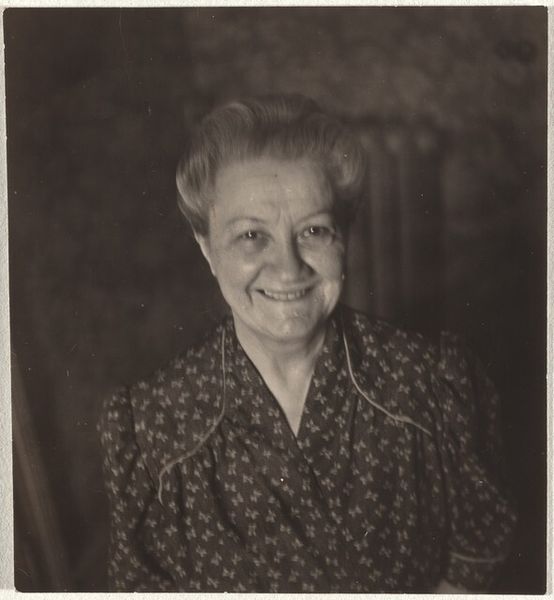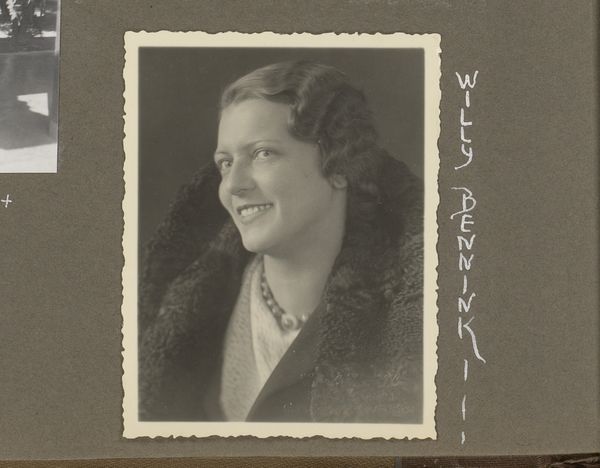
Portret van prinses Beatrix na terugkeer van een reis naar de Verenigde Staten 1959
0:00
0:00
anefo
Rijksmuseum
photography, gelatin-silver-print
#
portrait
#
dutch-golden-age
#
photography
#
historical photography
#
single portrait
#
gelatin-silver-print
#
modernism
#
portrait photography
Dimensions: height 239 mm, width 182 mm
Copyright: Rijks Museum: Open Domain
Curator: This gelatin silver print from 1959, taken by Anefo, captures Princess Beatrix following her return from a trip to the United States. The work, entitled "Portret van prinses Beatrix na terugkeer van een reis naar de Verenigde Staten", is now held at the Rijksmuseum. Editor: It's striking. The black and white enhances the almost classical composition of the portrait. There is strong luminosity across her face, making it appear like she is glowing from within. Curator: Yes, the tonal range achieved in the gelatin silver process offers incredible depth. The way the light defines the contours of her face is particularly compelling; notice how the subtle variations in gray create volume. The photograph truly embodies the style and sensibility of mid-century modernism. Editor: For me, it immediately calls to mind a society portraiture, albeit with a less formal approach. What narratives were circulating around Princess Beatrix at this moment, how was she seen publicly? A carefully cultivated royal image I would expect. Curator: Certainly, royal portraiture in that era needed to be mindful. The image functions as more than just an individual depiction, right? It negotiates national identity and expectations of a leader. However, look closely, and the softness is key: the curves, the smile. It offers an image of approachability. This specific kind of "relatability" speaks directly to shifting political ideas about the Monarchy's role. Editor: So this is about establishing a specific idea of what a modern monarch looks like in a postwar society… Curator: Exactly. A formal portrait of warmth. This contrast works because photography suggests, with a seemingly indexical touch, a true connection with the subject as they genuinely were, not simply how the image-maker wanted them to appear. It carries considerable political and symbolic weight. Editor: So much in an apparently simple photograph. I now see this photograph less as capturing a particular historical likeness, and instead revealing, subtly, how historical change gets reflected, literally, in an image. Curator: Indeed, reflecting not just light but an era's evolving hopes.
Comments
No comments
Be the first to comment and join the conversation on the ultimate creative platform.
